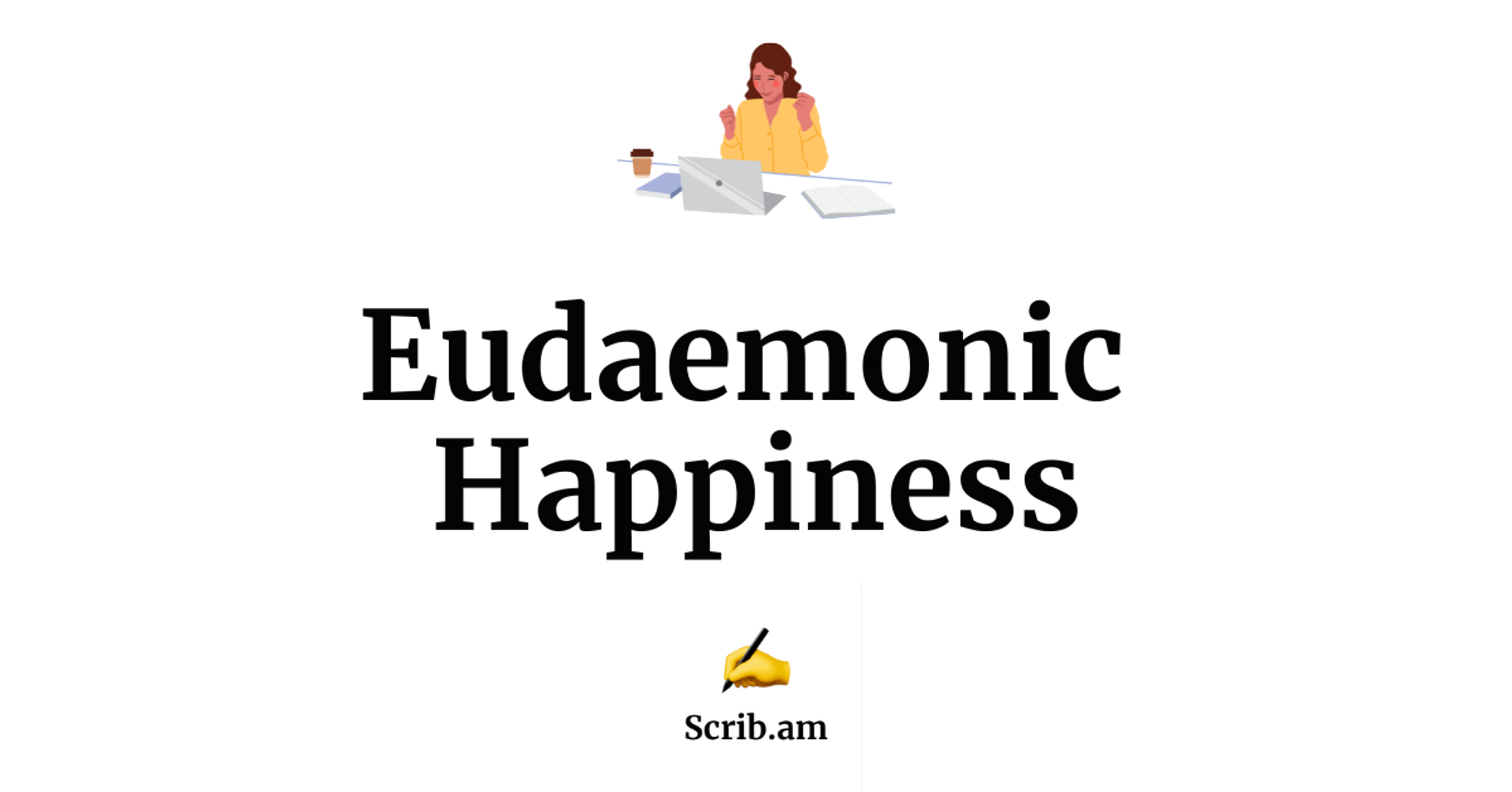I discovered the notion of eudaemonic happiness in a beautiful piece by Will Storr in The New Yorker.
Who coined the expression “eudaemonic happiness”?
Aristotle described in his Nichomachean Ethics the idea of eudaemonic happiness.
In a nutshell, it claims that happiness is an achievement, resulting from a deliberate practice, not just a fleeting feeling.

How do you reach eudaemonia?
Accomplishing eudaemonia requires a genuine commitment, a real dedication.
People reach eudaemonia when they conduct a fulfilling activity which best reflects their true self. Practically, it is the definition of the meaning of life (accomplish your purpose).
The steps along the way can be painful (such as training for a great athlete) but the bliss brought by the accomplishment(s) is the ultimate satisfaction.
Sporadic hedonistic bursts of joy can’t be mistaken for true happiness.
A scientific study reported in the New Yorker’s article states that eudaemonic happiness has a positive impact on the health condition of subjects experiencing that type of satisfaction, whereas hedonistic happiness doesn’t provide any conclusive health benefit. The study even argued that lacking eudaemonia can be as damaging as smoking or obesity.
Which type of project can bring eudaemonia?
The core projects of your life depend on your personal aspirations.
A scientist won’t be driven by the same motivation as an artist or an athlete.
But there’s one common denominator in all their pursuits: excellence, in their own field.

Striving for excellence isn’t chasing perfection.
It means constantly pushing the envelope to hone your skills.
Solving a new equation, mastering a new technique or improving your performance are all eudaemonic enablers, in the same way that drugs, alcohol or sensations can be considered hedonistic triggers.
There’s a persistence in eudaemonia which you won’t find in hedonism.
It doesn’t mean that you won’t experience a rollercoaster of emotions in your eudaemonic journey, with great highs and deep lows. But you’ll enjoy the compounding returns of your systematic efforts, whereas the hedonist will always be back to square one between the episodes of pleasure.
Eudaemonia is the way to achieve sustainable contentment.
I also invite you to read the article about Cathedral Thinking, definitely aligned with the notion of eudaemonic happiness.

